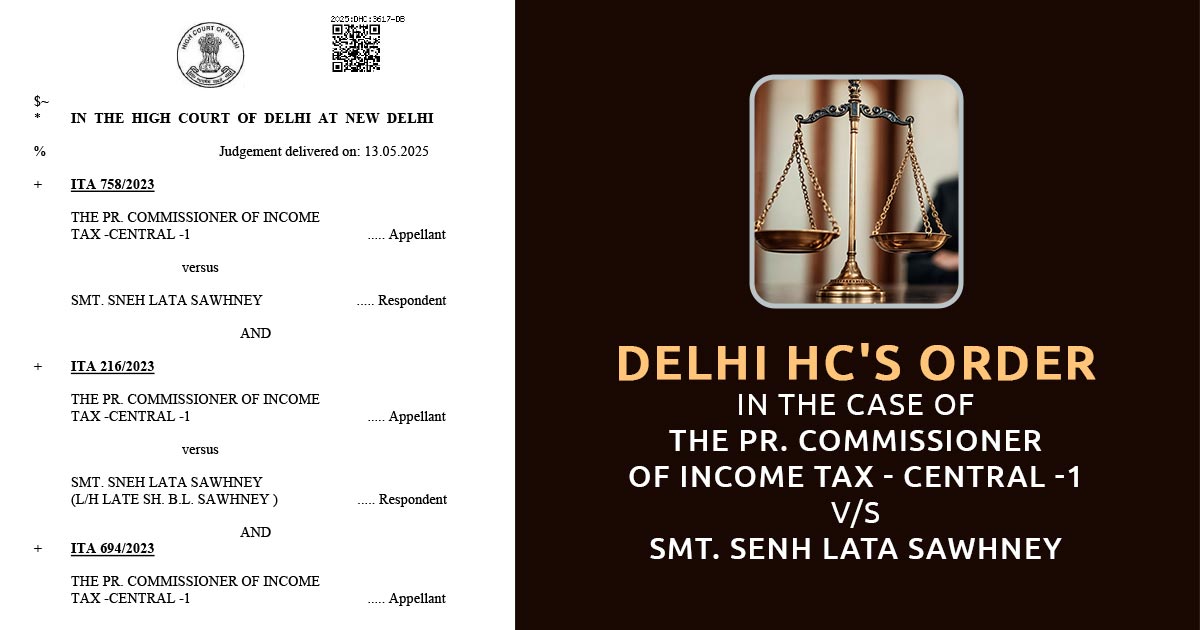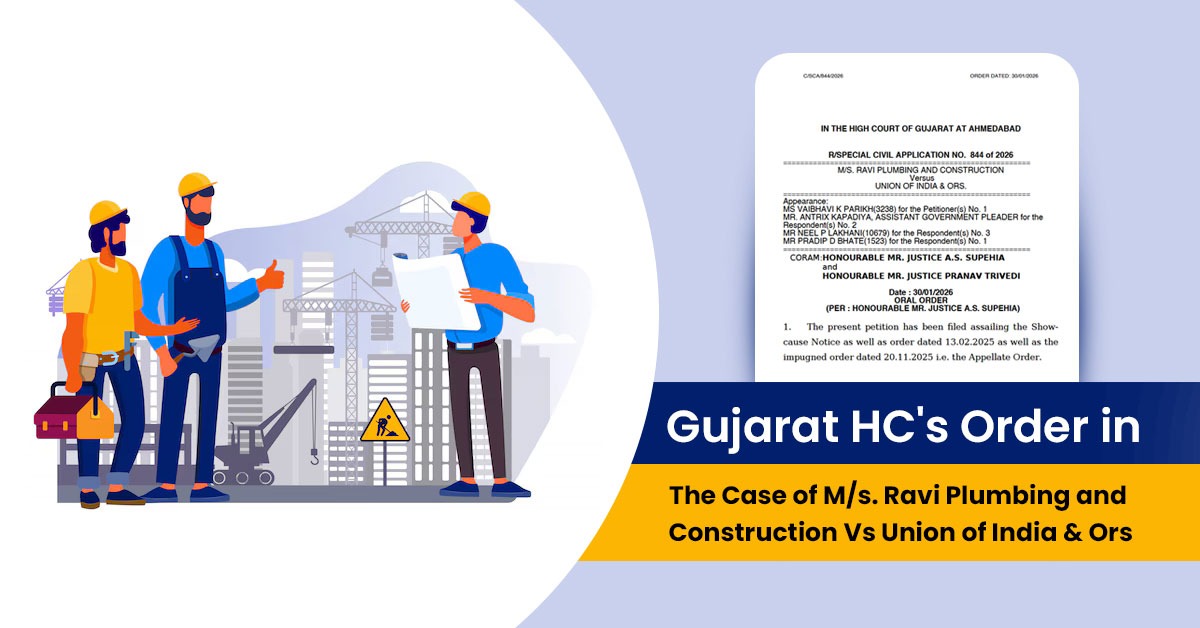
The Delhi High Court has ruled that a specific clause in the Income Tax Act cannot be used to extend the period for reviewing certain cases under the treaty between India and Switzerland, if the case itself is considered invalid.
A division bench of Justices Vibhu Bakhru and Tejas Karia said that,
“On a plain reading of Clause (ix) of the Explanation to Section 153B of the Act, the exclusion of time taken for obtaining the information (or one year) for completion of the assessment under Section 153A of the Act is applicable only if a reference for exchange of information has to be made as per the Agreement under Section 90/90A of the Act. It is necessary that reference be made in terms of the agreement. In this case, the benefit of exclusion of time by virtue of Explanation (ix) of Section 153B of the Act would, thus, be available only if the reference was made in terms of IndoSwiss DTAA. However, as noted above, the request as made was not in terms of the Indo-Swiss DTAA. It was contrary to the limitations as expressly specified under Article 14 of the Amending Protocol.”
In the course of proceedings u/s 153A, the revenue knows about the taxpayers carrying a Swiss bank account, and the taxpayer agreed to that.
Under the provisions of the ‘Exchange of Information’ Article of the Indo-Swiss Double Taxation Avoidance Agreement [Indo-Swiss DTAA], a request has been made by the competent authority for administrative support to the Swiss Tax Authorities on the request of AO.
The requested information is for the period before 01.04.2011. A communication has been sent by the Swiss authorities refusing the request for data based on the fact that the Indo-Swiss DTAA does not necessitate any obligation to furnish information for a period before 01.04.2011.
In the assessment order, the reassessment proceedings come to an end, making additions to the income from additional sources and unexplained expenditure.
Taxpayer succeeded in their respective appeals before ITAT, with the assessment orders from which the appeals originate were passed after the period as specified u/s 153B of the Act.
In the case of the revenue, the assessment order was not restricted in terms of Clause (ix) of the Explanation to Section 153B of the Act, the period starting from the date on which a reference was made for the request for data by the authority competent under the agreement directed to in Section 90 or Section 90A of the Act, in this case the Indo-Swiss DTAA and ending with the date on which the data is last received or one year, whichever is less, is need not to be included.
Taxpayer, reference was invalid, and hence the advantage of Clause (ix) of the Explanation to Section 153B of the Act was not available to the Revenue.
HC said that the only agreement that existed between the Swiss Confederation and India concerning the exchange of information under the Indo-Swiss DTAA is exemplified in Article 26, which was replaced by the Amending Protocol.
Due to the Amending Protocol, the Indo-Swiss DTAA has been updated regarding the exchange of information provisions.
According to the Delhi High Court, it is well established that novation releases the original contract.
“Thus, for all intents and purposes, Article 26 as it existed prior to 30.08.2010, ceased to exist. Since the Amending Protocol was signed on 30.08.2010, Article 26 would be effective only for exchange of information that relates to the following fiscal year, that is, commencing 01.04.2011,” it ruled.
No clause is there in the Amending Protocol that has an effect of saving any rights and obligations under Article 26 (numbered as Article 24 before 16.02.2000), or one that can be read as communicating the treaty partners objective to save any rights and liabilities for the exchange of data as extant before 30.08.2010, court cited.
Read Also: GCCI Urges FM to Extend ITR Deadline Due to Delays in Filing Utilities
“On the contrary, paragraph 3 of Article 14 of the Amending Protocol contains a non-obstante clause that makes it abundantly clear that Article 26 of the Indo-Swiss DTAA regarding exchange of the information would be applicable only for the information that relates to a fiscal year beginning or after the first day of January of the year following the date of the signing of the Amending Protocol, that is, a fiscal year commencing on or after 01.01.2011, which in the case of this country would be 01.04.2011.”
The court in the above said ruled that revenue did not make any request for the data of the period before 01.04.2011 in terms of the Indo-Swiss Double Taxation Avoidance Agreements (DTAAs).
Another question is whether the assessment completion period stands extended notwithstanding that the request for the data of the revenue authority was not carried out.
An interpretation is needed for the limitation period as cited u/s 153B of the Act, it ruled and therefore held that the limitation could not be extended for the period of an invalid request.
Hence, the appeal of the revenue was dismissed.
| Case Title | The PR. Commissioner of Income Tax – Central -1 vs. SMT. Senh Lata Sawhney |
| Case No. | ITA 758/2023 |
| For the Appellant | Mr. Puneet Rai, Mr Ashvini Kumar, Mr Rishabh Nangia, and Mr Nikhil Jain |
| For The Respondents | Dr Rakesh Gupta, Mr Somil Agarwal and Mr Dushyant Agarwal |
| Delhi High Court | Read Order |









